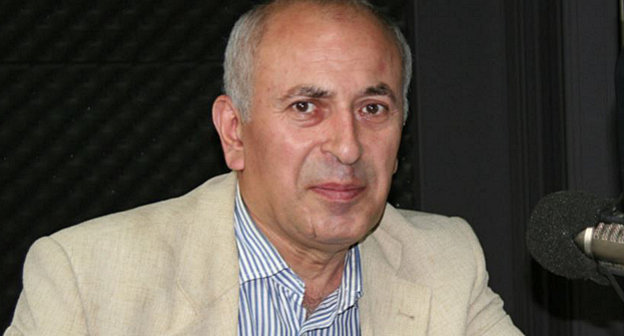The absence of diplomatic relations between Russia and Georgia does not create obstacles to trade, tourism and cultural exchange, but there is no political breakthrough. This conclusion was reached by participants of the video conference between Moscow and Tbilisi titled 'Russia and Georgia in a new international context'.
The senior research fellow of the Caucasus Problems and Regional Security Center at the Moscow State Institute of International Relations, Nikolai Silaev, recalled that the Euro-Atlantic integration, the all-round rapprochement with the European Union and the accession to NATO have remained Georgia's priority for many years: "At the same time, Georgia's partners - the European Union, the United States and NATO - are experiencing a certain crisis in this direction. Their ability to conduct an active foreign policy is in question. This condition can lead to a certain disorientation of Georgia's foreign policy circles".

According to Nikolai Silaev, in the Russian-Georgian relations there has been a kind of pause for several years already, but Tbilisi has so far avoided involvement in the deterrence policy of the United States towards Russia: "The current global situation gives an opportunity to such countries as Georgia to manifest their own political subjectness".

Senior researcher of the Russian Institute for Strategic Studies, Konstantin Tasits, named terrorism among the problems preventing the liberalization of the visa regime between Russia and Georgia: "If before the Olympics in Sochi, Russian officials noted positive dynamics and expressed gratitude to the Georgian side for its assistance in providing security, recently Russian Foreign Minister Sergei Lavrov noted that the level of mutual understanding between the special services is not enough. It can hardly be sufficient without political contacts. It is a fairly locked topic, but it is clear that full-fledged cooperation in the fight against terrorism requires political dialogue."

As for the economic cooperation between Moscow and Tbilisi, the professor of the Ivane Javakhishvili Tbilisi State University, Iosif Archvadze, believes that there are certain successes here: "The growth of foreign trade turnover with Russia in the first quarter of this year has grown almost 1.4 times. Russia has come close to the level of Turkey, which is leading in the Georgian market. Although a few years ago the share of Russia was reduced to a symbolic amount ... Georgia could play a significant role in promoting Russian goods and services not only to the countries of the South Caucasus, but also to Asia, it could contribute to the realization of the interests of Russian capital on the basis of mutual interests."
As for Georgia's drift towards the European Union, then, according to Archvadze, the European market is capacious and solvent: "Georgia's exports to Western Europe grew by 44% in the current first quarter. It is a fairly significant increase. Georgia has ceased to be regarded as a supplier of wine, vodka and mineral waters in the Russian market. In the first quarter of this year, Georgia supplied the amount ferroalloys to Russia, which exceeds the amounts from exports of wine materials, grape wine, other alcoholic beverages, mineral waters, and other products. Georgia has the potential to enter the world market, including the Russian one, not only with traditional agricultural food products, but also with products of higher technological content. I think that the Russian capital has something in this respect to take a closer look and take the mutual interests into account".






